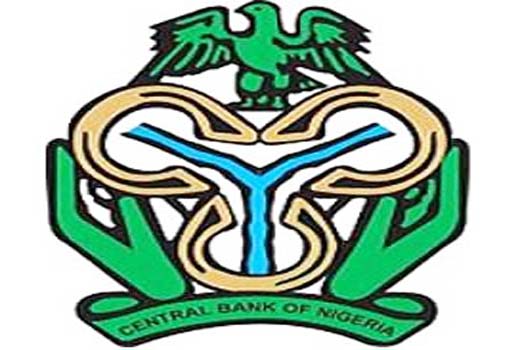CBN Tightens Noose on Cryptocurrency Market

On Friday, 05 February 2021, the Central Bank of Nigeria (CBN) through a circular reference number BSD/DIR/GEN/LAB/14/001 instructed financial institutions to immediately close the accounts of persons or entities transacting in or operating cryptocurrency exchanges noting that such activities were prohibited. The Central Bank also added that “breaches of this directive will attract severe regulatory sanctions.”
CBN and the Fear of Crypto
As countries globally find the categorisation of crypto currencies difficult to establish, central banks have adopted different approaches and interpretations to managing the financial ‘asset’. Some countries have opted to put a lid on the use of the currency as a medium of exchange and a store of value, while others have adopted a less severe approach by permitting narrow ranges of transactions. In a country like India, just as Nigeria, the monetary authorities have leaned towards a hard break approach to cryptocurrency activities but a few Indian exchanges have started to search for a soft compromise. The Indian cryptocurrency exchanges have commenced collective initiatives to convince the Indian parliament to regulate the cryptocurrency market rather than impose an outright ban.
In Nigeria, the CBN had earlier warned investors about the high risks involved in investing and trading in cryptocurrencies, sighting the problem of a lack of regulation of the market in Nigeria. However, digital currencies gained prominence in 2020 and became a subject of discussion when Nigeria’s Securities and Exchange Commission (SEC) announced its guidance on the regulation of crypto-token or crypto-coin investments which it said qualified as investments for securities transactions. The difference of opinion between the SEC and the CBN reflects the innate dilemma that cryptocurrencies represent as a tradeable asset.
Cryptocurrencies bear resemblance to ‘collectibles’ whose value is derived from perception and rarity of the item, while equally reflecting a currency as it serves as a medium of exchange and a store of value (similar to a collectible). The grey nature of the cryptocurrency’s asset class has put global financial regulators in a fix (see illustration 1 below).
However, corporate finance professionals currently argue that cryptocurrencies are not ‘assets’ in the conventional sense, and accounting for them in company books would require deeper study.
From a monetary policy standpoint, regulators believe that cryptocurrencies make it difficult for Central Banks to perform their traditional functions of ensuring price stability and the promotion of economic growth. Analysts have highlighted some of the challenges involved with digital assets.
First, Central Banks are charged with the traditional function of maintaining price and financial stability issuing currency, both physical and electronic but the evolution of the digital assets serves as a tough grind for Central Banks in the conduct of monetary policy and supervision. The gain in the popularity of the use of cryptocurrencies largely undermines CBNs role in controlling money supply as Central Banks have no control over the supply of cryptocurrencies. The general acceptance of cryptocurrencies would affect the demand of existing money aggregates (M1, M2, and M3) which Central Banks use as instruments of monetary policy.
Furthermore, it has been argued by Central Bankers that cryptocurrencies are very volatile and are primarily driven by sentiments and have no fundamentals. Most Central Banks globally have argued that it is their prerogative to protect consumers from exuberant speculation and asset volatility which could to large individual and corporate financial losses.
In recent times there have been efforts by the CBN to reduce the number of bank-related fraud cases in the country by requesting that all accounts be linked with a unique Bank Verification Number as well as a NIN (National Identity Number). Central Bankers have, therefore, noted that cryptocurrencies heighten the risk of financial fraud as distributed ledger technology is mostly anonymous. Cryptocurrencies are stored in digital wallets, which use cryptography, that need specific codes to be granted access to the units of value in the wallet. In cases where the codes are stolen or the wallets hacked, users or holders suffer heavy losses.
Back to Reality
A few local monetary policy analysts have noted that the CBN’s recent policy announcement would have little or no effect on crypto transactions in Nigeria. They argue that retail transactions could still be completed outside the regulated marketplace sighting the flow of peer-to-peer retail transactions involved when using digital currencies that do not need to go through official financial institutions. On the flip side, other analysts note that the policy announcement would hurt many businesses that use cryptocurrencies to transact international businesses given the scarcity of FX in the Nigerian forex market.
Taming the Crypto Bull
Different Central Banks have adopted a variety of regulatory measures in addressing the digital currency conundrum. For example, Some Central Banks have chosen to completely ban the use of digital currencies, others have chosen to regulate it, while some have started the process of developing an indigenous digital currency under the control of the Central Bank e.g., In 2020, China pushed one of the biggest real-world trials for its digital currency which was issued and is being controlled by the People’s Bank of China. Some of the policies that have been adopted by Central Banks globally include information/moral suasion, interpretation of existing regulations, regulation of specific entities, licenses, prohibition, etc (see Table 1 below).
Although some of the fears of the Central Bank of Nigeria are valid, it has been argued that there are alternative strategies that the CBN could adopt in addressing the local cryptocurrency ecosystem rather than adopting an outright prohibition. Some analysts have suggested that the Securities and Exchange Commission (SEC) follow through with the process in regulating cryptocurrency activities. As of last year, the SEC announced its guidelines in regulating cryptocurrencies but no new information has been released since then. Both SEC and the CBN must harmonize their positions on cryptocurrencies in Nigeria.
Also, economists have mentioned that the future of global electronic transactions will involve digital currencies. Although developing a digital currency requires high levels of sophistication and expertise, it has been suggested that the CBN develop its digital wallets through which cryptocurrency transactions could gain pass-throughs giving the regulator a stronger oversight of money supply and digital transactions. Unfortunately, digital payment platforms such as flutterwave are already sending messages to their customers that “In light of the recent directive by the Central Bank of Nigeria prohibiting financial institutions from engaging in cryptocurrency, we regret to inform you that we will not be able to further extend our services to support cryptocurrency use cases in Nigeria, in line with our Terms and Condition”. It is questionable that in a dynamic global digital currency market that this is the way to go.
Last thoughts
There are a lot of unknowns and gaps that would need filling. Everyone will have to be guided by the resolution of regulatory-operator-consumer/investor grids and rules that emerge from collective engagement. While the system works towards this, it is important to keep an eye on what has worked, what could go wrong, and how the domestic market should be strategically positioned in the global flow of digital/crypto transactions. In this process guidelines and not bans or prohibitions is always the preferred and more sustainable approach.






